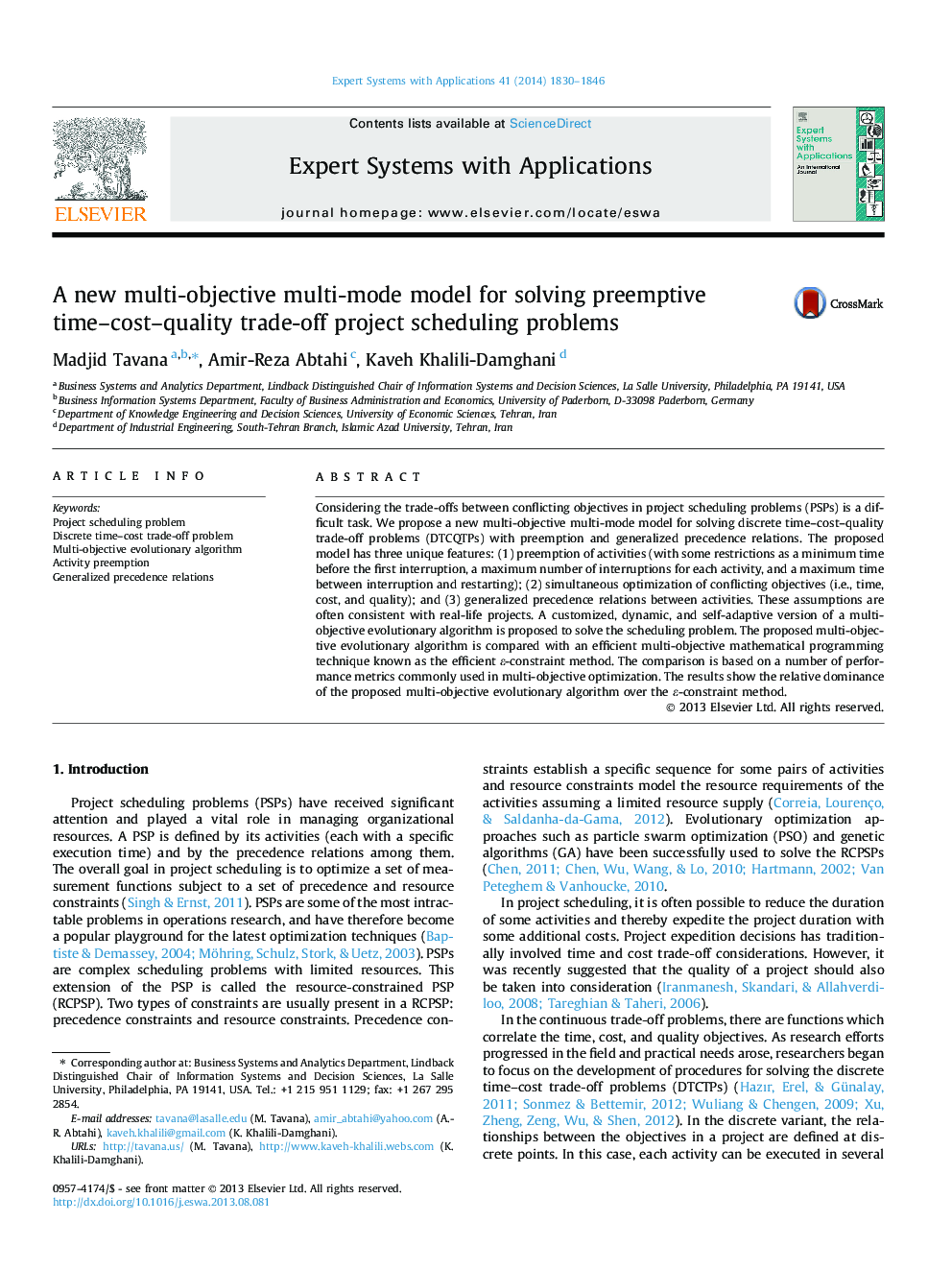| Article ID | Journal | Published Year | Pages | File Type |
|---|---|---|---|---|
| 382507 | Expert Systems with Applications | 2014 | 17 Pages |
•Considering time–cost–quality trade-offs in project scheduling is an important problem.•A customized, dynamic and self-adaptive NSGA-II is proposed to solve these problems.•We consider preemption and generalized precedence relations.•The proposed NSGA-II is compared with an efficient ε-constraint method.•The results show the relative dominance of our NSGA-II over the ε-constraint method.
Considering the trade-offs between conflicting objectives in project scheduling problems (PSPs) is a difficult task. We propose a new multi-objective multi-mode model for solving discrete time–cost–quality trade-off problems (DTCQTPs) with preemption and generalized precedence relations. The proposed model has three unique features: (1) preemption of activities (with some restrictions as a minimum time before the first interruption, a maximum number of interruptions for each activity, and a maximum time between interruption and restarting); (2) simultaneous optimization of conflicting objectives (i.e., time, cost, and quality); and (3) generalized precedence relations between activities. These assumptions are often consistent with real-life projects. A customized, dynamic, and self-adaptive version of a multi-objective evolutionary algorithm is proposed to solve the scheduling problem. The proposed multi-objective evolutionary algorithm is compared with an efficient multi-objective mathematical programming technique known as the efficient ε-constraint method. The comparison is based on a number of performance metrics commonly used in multi-objective optimization. The results show the relative dominance of the proposed multi-objective evolutionary algorithm over the ε-constraint method.
